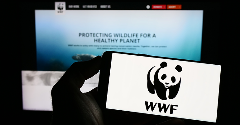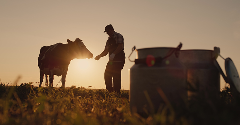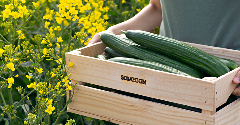News
This practical toolkit helps brands to improve food safety
23 Aug 2022
Food safety is one of the biggest challenges facing the global food industry. To combat this issue, companies need to establish strong food safety cultures. This practical guide is designed to help brands progress on their journey to food safety.
Foodborne diseases, which are over 200 in number and range from diarrhoea to cancers, affect one in 10 people worldwide each year, data from the WHO shows. They are caused by food contamination at any point in the food production chain, from production to packaging to consumption, and often result from environmental contamination such as water, air and soil pollution, and unhygienic food processing, storage, and handling.

In addition to the clear threat to human health posed by such diseases, they also contribute to a range of social and financial problems such as absenteeism from school and work and strained healthcare systems.
What’s worse, although foodborne diseases are present worldwide, it is disproportionately the most vulnerable subsections of the population, such as those in developing, low- and middle- income nations, as well as children under the age of five, that experience the most serve effects. Over 420,000 people, 125,000 of whom are children, lose their lives to foodborne disease each year, of which diarrhoeal diseases account for the majority of cases.
And this issue is only being exacerbated by the growing complexity and interconnectedness of global food chains, in which our food is travelling further than ever before to reach our plates.
A toolkit to help companies build a strong food safety culture
To combat the issue of unsafe food, the Alliance to Stop Foodborne Illness (the Alliance) recently published an evolving food safety toolkit, which is aimed at helping SMEs in the food industry to develop mature, internal food safety cultures.
Established via a partnership between members of the Alliance and Stop Foodborne Illness (STOP), a non-profit organisation focussing on food safety, consisting of key food safety practitioners from various Fortune 500 companies, the toolkit is an open access resource that lays out practical steps that can be taken to strengthen food safety behaviours.
"This toolkit helps food companies shift from doing the bare minimum to avoid recalls to making good, holistic choices to protect overall public health," Dr Vanessa Coffman, Director of Alliance to Stop Foodborne Illness, said in a recent press release.
Brands can make use of the set of self-reflective activities and how-to-strategies detailed in the toolkit, to take the first steps in building a framework to improve their own food safety culture.
How can companies use the toolkit?
The actions brands take in producing food and organising food supply chains can have a direct effect on preventing infectious hazards, chemical residues, and microbial pathogens and biotoxins from ending up in the food we consume.
Making essential, systematic changes to food safety and subsequently health, is a perquisite for both the enablement of long-term human development, as well as the achievement of the UN Sustainable Development Goals (SDGs).
For manufacturers, improving the safety of food production also contributes to achieving sustainability and corporate responsibility goals, which can in turn improve the reputation and commercial returns of brands.
Recognising that each company’s food safety culture journey is different, the toolkit is an evolving resource that encourages brands to engage in a process of continuous self-reflection to establish a food safety strategy that aligns to with their commercial priorities and values.
Rather than being a checklist of requirements, the toolkit consists of several subsections which are designed to guide companies along the food safety journey.
The toolkit’s practical self-evaluation activities set out to help SMEs firstly to evaluate their vision and set their priorities, define and exemplify their established food safety culture across the entire organisation, and finally establish reward and recognition programmes to help guide desired behaviours and formalise roles and responsibilities of engaged employees.
Companies can also benefit from the toolkit’s library of case studies and additional resources, which share best practises from a range of businesses across the food industry.
The toolkit is in ongoing development and with time, will grow to include a greater selection of resources, including case studies, documents, links to useful websites, among others. STOP encourages interested parties to contribute to the toolkit and provide constructive feedback on how the resource may be improved in future.
By collaborating and sharing experiences around the shared goal of improving the safety of the food we produce and consume, the hope is that a more sustainable, safer, and equal global food system will be established for the future.
Interested stakeholders can access the free Food Safety Culture Toolkit here.
Related news

Soy story: WWF scores UK supermarkets on sustainability efforts
12 Nov 2025
WWF has published its latest “Soy Scorecard”, ranking UK supermarkets’ efforts to combat deforestation and land conversion in their soy supply chains.
Read more
Standing Ovation and Bel scale up casein production from dairy co-products
11 Nov 2025
Foodtech company Standing Ovation has partnered with cheese specialist Bel Group to manufacture dairy serums for industrial-scale casein production via precision fermentation.
Read more
New UPF standard hoped to offer consumers ‘coherence and clarity’
10 Nov 2025
Ingredients companies are being urged to enter “a new era of partnership and innovation” following the launch of the industry’s first non-UPF verification scheme.
Read more
Whistleblowers accuse UK meat industry of promoting cheap, unsustainable supply
7 Nov 2025
An anonymous group of industry insiders has accused the UK’s biggest food companies of systematically driving down meat quality and welfare standards.
Read more
Bord Bia presents Irish dairy ingredient suppliers at Fi Europe
6 Nov 2025
Dairygold Co-operative Society, The Carbery Group, and Ornua Co-operative: Meet with sustainable producers of Irish dairy ingredients at Food ingredients Europe 2025, Hall 7.2 Stand M18.
Read more
AI attraction means foodtech startups must ‘prove’ rather than ‘promise’
4 Nov 2025
Reports suggest that artificial intelligence (AI) is sucking investment from foodtech and agritech, but investors say the picture is complicated.
Read more
Penguin and Club bars no longer classed as chocolate
30 Oct 2025
Penguin and Club bars can no longer be classified as chocolate after the pladis-owned McVitie’s brands turned to cheaper alternatives amid the ongoing cocoa crisis.
Read more
Could plant-based protection replace plastic packaging?
29 Oct 2025
Swedish foodtech company Saveggy has launched an additive-free plant-based protection for cucumbers, offering a waste-free packaging solution for fruit and vegetables.
Read more
Does promoting protein content push up plant-based sales?
27 Oct 2025
Promoting the protein content of meat-free products is a more effective sales strategy than adding carbon labels, a study of UK bakery chain Greggs suggests.
Read more
Amazon Grocery launch aims to balance quality with affordability
22 Oct 2025
Global e-commerce giant Amazon has introduced a new private-label food brand, combining existing Amazon Fresh and Happy Belly products with new everyday items.
Read more